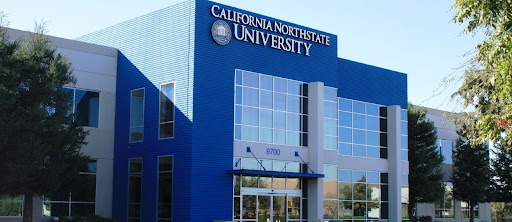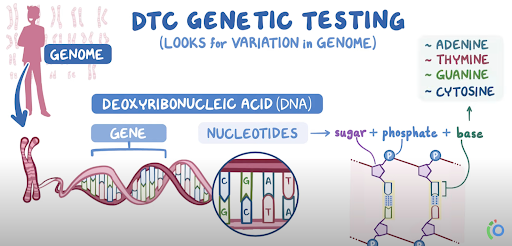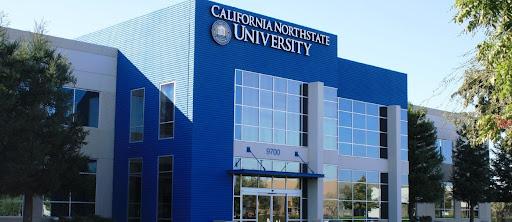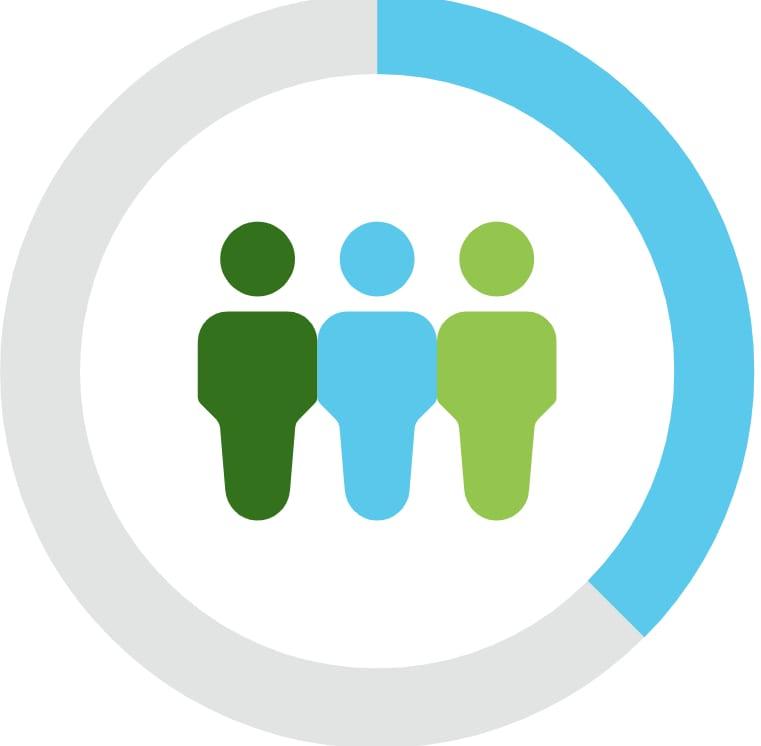By Tomi Oyedeji-Olaniyan
As part of a new collaboration, the California Northstate University College of Medicine worked with 23andMe to improve their pre-existing genetics curriculum for medical students by integrating components of 23andMe’s genetics education program.
This enhanced curriculum addresses known gaps in genetics education in US medical schools and is based on recommendations from the Association of Professors of Human and Medical Genetics.3
“The truth is that genetics does impact all areas of medicine, and we know that now much more than we did a decade ago or five years ago,” said Noura Abul-Husn, MD, PhD, Vice President of Genomic Health at 23andMe. “I’m excited that we’re making a difference through our education initiatives, where we can offer information to healthcare providers outside of our ecosystem to learn more about genetic testing, genetic health results, and how to use them.”
While the scientific community has made significant advances in the clinical applications of genetics, many patients still do not have easy access to clinicians with genetics training. As a result, patients rely heavily on primary care physicians to address their genetic concerns.1 Despite this, a 2022 study revealed that most healthcare providers (HCPs) do not feel prepared to use genetic information in patient care or to address direct-to-consumer (DTC) genetic test results.2
This gap in genetics education starts during medical school, where genetics is often only taught during the preclinical years and is virtually non-existent during the clinical years.3 The collaboration between 23andMe and California Northstate University College of Medicine aims to help address this gap in genetics education and offer medical students an expanded and more comprehensive genetics curriculum.

The Curriculum
As part of this new curriculum, first-year medical students studying genetics will be watching a series of micro-learning videos this fall. These educational videos result from a collaboration between 23andMe and Osmosis, an online educational platform for students and clinicians. The videos cover topics including genetic variation and disease, complex disease and polygenic risk scores, family health history, interpreting genetic test results, and pharmacogenomics. Upon completing the course, students will be assessed for improved knowledge content and asked for feedback on the enhanced course.
California Northstate University College of Medicine’s first-year medical curriculum requires students to take courses that focus on the fundamental principles of the basic sciences, such as genetics. This collaboration will equip the school’s first-year students with clinically-informed genetics education, allowing them to apply their academic knowledge to real-world clinical practice. Additionally, the medical school offers research opportunities, allowing students with an interest in exploring innovative approaches to genetics education to delve deeper, further supporting our efforts.
“As the future of medicine increasingly relies on genomics, it is essential for physicians to develop expertise in this field,” said Richard Isaacs, MD, FACS, Dean and Senior Vice-President of Medical Affairs and Professor of Otolaryngology-Head and Neck Surgery at California Northstate University College of Medicine. “We must equip physicians and staff with the tools and knowledge to lead in this dynamic area.”
Why is it essential for doctors to have this training?
With the rise of direct-to-consumer genetic testing, it is becoming increasingly important that healthcare providers can interpret and discuss results with their patients. Genetic testing provides tools that can aid healthcare providers in personalizing care for their patients. Many clinics are also starting to adopt precision medicine — an approach, as defined by the US Food and Drug Administration (FDA), to “tailoring disease prevention that accounts for differences in people’s genes, environments, and lifestyles.” Genetics plays a major role in helping HCPs make the right care decisions for their patients and, ultimately, improving clinical outcomes.
Patients are also becoming more proactive about their health. With more awareness surrounding the genetic association with diseases such as breast cancer, Alzheimer’s, and colorectal cancer, patients are choosing to undergo screening and take preventive action where possible. For many patients, this could include DTC testing, which they might then bring to their HCP. Therefore, genetics education and training remain a critical skill set for HCPs.

An Ongoing Effort
A leading consumer genetics and research company, 23andMe, has been working to improve genetics education for customers and clinicians. Our Personal Genome Service was the first genetic service authorized by the FDA to provide direct-to-consumer Genetic Health Risk*, Carrier Status*, and Pharmacogenetic reports**. With genetic education at the forefront of customer interaction, 23andMe continues to expand this mission into improved genetics training for HCPs.
In 2021, 23andMe acquired Lemonaid Health, a telehealth service focused on affordable and accessible healthcare. Since the acquisition, Lemonaid Health clinicians have also undergone a 23andMe-developed training program in genetics-informed care, and patients can schedule clinical consultations to discuss their genetic results. Studies done by 23andMe have shown positive learning outcomes after clinicians have completed the training.
“Healthcare providers are facing a wide variety of questions about genetic testing from patients, especially about the genetic aspects of common diseases such as cancer, heart diseases, and mental illness,” explains Anne Greb, MS, CGC, Director of Genomic Health Education at 23andMe. Anne, a trained genetic counselor, has dedicated her career to teaching, improving, and developing genetics education curricula for HCPs the last three decades. “Now, there is an urgent need to modernize genetics education with engaging, scalable activities and resources so HCPs can integrate genetics into the care of their patients.”
23andMe’s Genomic Health team continues to engage with physicians, genetic counselors, pharmacists, and other HCPs to provide resources for interpreting and discussing 23andMe genetic reports. These resources include HCP-led educational videos, sample reports, bite-sized open-source educational videos, and much more. Visit our website for healthcare professionals to learn more about how 23andMe is supporting HCPs
References:
- Chou AF, et.al. Barriers and strategies to integrate medical genetics and primary care in underserved populations: a scoping review. J Community Genet. 2021;12(3):291-309.
- French EL, et.al. Physician Perception of the Importance of Medical Genetics and Genomics in Medical Education and Clinical Practice. Med Educ Online. Vol. 28. 2023
- Haspel RL, et.al. Call for improvement in medical school training in genetics: results of a national survey. Genet Med. 2021 Jun; 23(6): 1151–1157
- Center for Devices and Radiological Health. “Precision Medicine.” U.S. Food and Drug Administration, FDA, www.fda.gov/medical-devices/in-vitro-diagnostics/precision-medicine (Accessed 16 Aug. 2024).
Note:
*The 23andMe PGS test includes health predisposition and carrier status reports. Health predisposition reports include both reports that meet FDA requirements for genetic health risks and reports that are based on 23andMe research and have not been reviewed by the FDA. The test uses qualitative genotyping to detect select clinically relevant variants in the genomic DNA of adults from saliva to report and interpret genetic health risks and report carrier status. It is not intended to diagnose any disease. Your ethnicity may affect the relevance of each report and how your genetic health risk results are interpreted. Each genetic health risk report describes if a person has variants associated with a higher risk of developing a disease but does not describe a person’s overall risk of developing the disease. The test is not intended to tell you anything about your current state of health or to be used to make medical decisions, including whether or not you should take a medication, how much of a medication you should take, or determine any treatment. Our carrier status reports can be used to determine carrier status but cannot determine if you have two copies of any genetic variant. These carrier reports are not intended to tell you anything about your risk for developing a disease in the future, the health of your fetus, or your newborn child’s risk of developing a particular disease later in life. For certain conditions, we provide a single report that includes information on both carrier status and genetic health risk. Results should be confirmed in a clinical setting before taking any medical action. For important information and limitations regarding each genetic health risk and carrier status report, visit 23andme.com/test-info/
**23andMe PGS Pharmacogenetics reports: The 23andMe test uses qualitative genotyping to detect 3 variants in the CYP2C19 gene, 2 variants in the DPYD gene and 1 variant in the SLCO1B1 gene in the genomic DNA of adults from saliva to report and interpret information about the processing of certain therapeutics to inform discussions with a healthcare professional. It does not describe if a person will or will not respond to a particular therapeutic. Our CYP2C19 Pharmacogenetics report provides certain information about variants associated with metabolism of some therapeutics and provides interpretive drug information regarding the potential effect of citalopram and clopidogrel therapy. Our SLCO1B1 Pharmacogenetics report provides certain information about variants associated with the processing of some therapeutics and provides interpretive drug information regarding the potential effect of simvastatin therapy. Our DPYD Pharmacogenetics report does not describe the association between detected variants and any specific therapeutic. Results for DPYD and certain CYP2C19 results should be confirmed by an independent genetic test prescribed by your own healthcare provider before taking any medical action. Warning: Test information should not be used to start, stop, or change any course of treatment and does not test for all possible variants that may affect metabolism or protein function. The PGS test is not a substitute for visits to a healthcare professional. Making changes to your current regimen can lead to harmful side effects or reduced intended benefits of your medication, therefore consult with your healthcare professional before taking any medical action. For important information and limitations regarding Pharmacogenetic reports, visit 23andme.com/test-info/pharmacogenetics/



